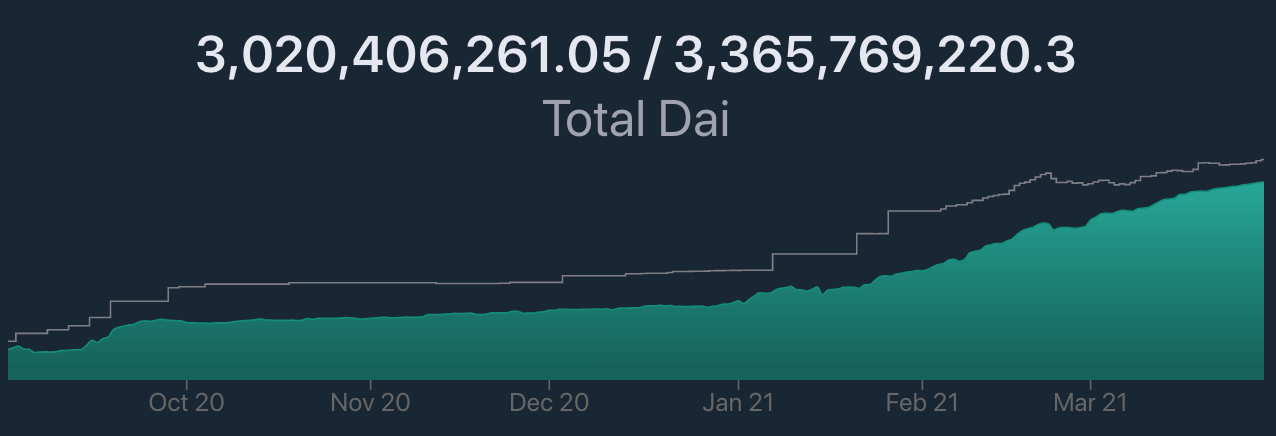The Tally Newsletter, Issue 25
March 31, 2021
Welcome back for issue 25 of the Tally Newsletter, a publication focused on all things decentralized governance. We’ll keep you updated on key proposals, procedural changes, newly launched voting systems, shifting power dynamics, and anything else you need to know to be an informed citizen.
This week we cover the Uniswap grant committee’s increased funding request for Q2, along with recent proposals and ecosystem news.
Also, Tally is hiring full stack engineers anywhere in the Americas time zone. If you’re interested in working with us to make on chain governance work, apply on our jobs page!
Uniswap Grants Requests Increased Funding Limit
TL;DR: While UNI token appreciation means surplus funds are already available in the grants multisig, governance approval is still needed to expand the original funding target.
With 3 months of operations behind it and Q1’s $750,000 budget fully allocated, the Uniswap grants committee has already executed against its mandated goals. But the recent announcement of Uniswap v3 potentially increases the ecosystem’s need for funding, and the grants committee is seeking to increase its scope and funding for Q2 to fill the gap.
Specifically, the grants committee has requested to increase its funding limit for the second quarter from $750,000 to $1.5 million. $500,000 of the increase would be committed to a bug bounty program for Uniswap v3 (matching funds contributed by the Uniswap Labs team), with the remaining $250,000 added to the regular grants funding pool.
For context, when the Uniswap grants program was originally approved by Uniswap governance in proposal 3, the price of UNI had been languishing under $3 and a total amount of 519,000 UNI were granted to fund approved spending of up to $1.5 million over two quarters. In the time since, the value of UNI has increased by around 10x, resulting in a current multisig balance of over $10 million.
While this is a good problem for the community to have, it presents some procedural challenges and questions that were not addressed in the original governance proposal. The requirements to transfer funds or other admins from the community governance timelock are clearly codified in the underlying smart contracts, but once funds have moved outside of on chain governance social consensus takes precedence.
So far, the Snapshot vote shows decent support for increasing spending limits with over 99% of votes cast in favor. But the total participation rate of 20,000 UNI pales in comparison to the typical 40 million UNI threshold required to meet quorum on a proposal.
There could be several reasons for this, with recusal of grants committee members with large delegated voting power as one evident factor (eg Kenneth, Robert, and myself). Other vote holders may wish to give smaller participants a chance to be heard and have a greater impact on governance. And lastly, certain custody users may be unable to vote in Snapshot polls if their provider doesn’t already offer support.
Regardless of the reasons for muted participation, the Snapshot vote demonstrates an arguably lower level of community consensus versus a full governance proposal. MakerDAO offers an interesting counterexample, where even the monthly procedural measures to ratify MIPs (which doesn’t require any on chain execution) must be passed with a full vote to ensure it meets the same standards of approval as other proposals.
A clearer mandate for spending and asset management may also benefit Uniswap Grants and other programs in the future. Token price increases have helped extend the grants committee’s funding power, but one could also envision a situation where funding is curtailed by price falls. In this case, a full governance proposal would be required to top up the grants body with additional funds to meet their additional USD denominated mandate. Switching to a hybrid mandate where the grants body can convert some funds to a stable reserve asset may help remove ambiguity about funding levels. Alternatively, protocols may choose to “over fund” their grants bodies to allow for some downside volatility without requiring follow-on governance votes.
While the Snapshot vote looks on track to pass this Friday, it laid bare some of the limits of the current grants multisig architecture being adopted by Compound, Indexed Finance, and others. If Uniswap voters don’t approve of increased grants outlay or other multisig actions, they have limited means of forcing the signers to comply beyond asking nicely. Better oversight and control mechanisms for multisigs could give protocols the confidence they need to continue devolving operational power for improved agility.
Disclosure: Author is a reviewer for the Uniswap grants program. Views are my own and don’t represent other committee members or Uniswap governance.
In Brief:
Fei Protocol prepares for genesis event:
Compound proposal 42 for governor bravo upgrade passes:
Compound contributor Arr00 releases a commemorative NFT for voters, claimable until Friday:
Indexed Finance considers joint liquidity mining scheme with Ruler lending protocol (similar to recently passed Inverse Finance proposal 13):
MakerDAO reaches 3 billion DAI outstanding, driven by strong demand from Yearn, Alchemix, and other upstart protocols:
Inverse Finance proposal 14 passes, offers incentives to INV and DOLA LPs to help bootstrap Anchor lending system:
Idle Finance takes Yearn’s lead in creating B2B referral program:
PleasrDAO forms to win auction for 1 of 1 Uniswap v3 NFT:
UMA’s innovative KPI (key performance indicator) options airdrop goes live:
Thanks for joining us for issue 25 of the Tally Newsletter! Be sure to check out the Tally governance app, join us on Discord, and subscribe to our protocol calendar for the latest updates!
Anything we missed? New developments or protocols you’d like to see covered? Drop us a line at newsletter@withtally.com
Best,
Nate, Tally











